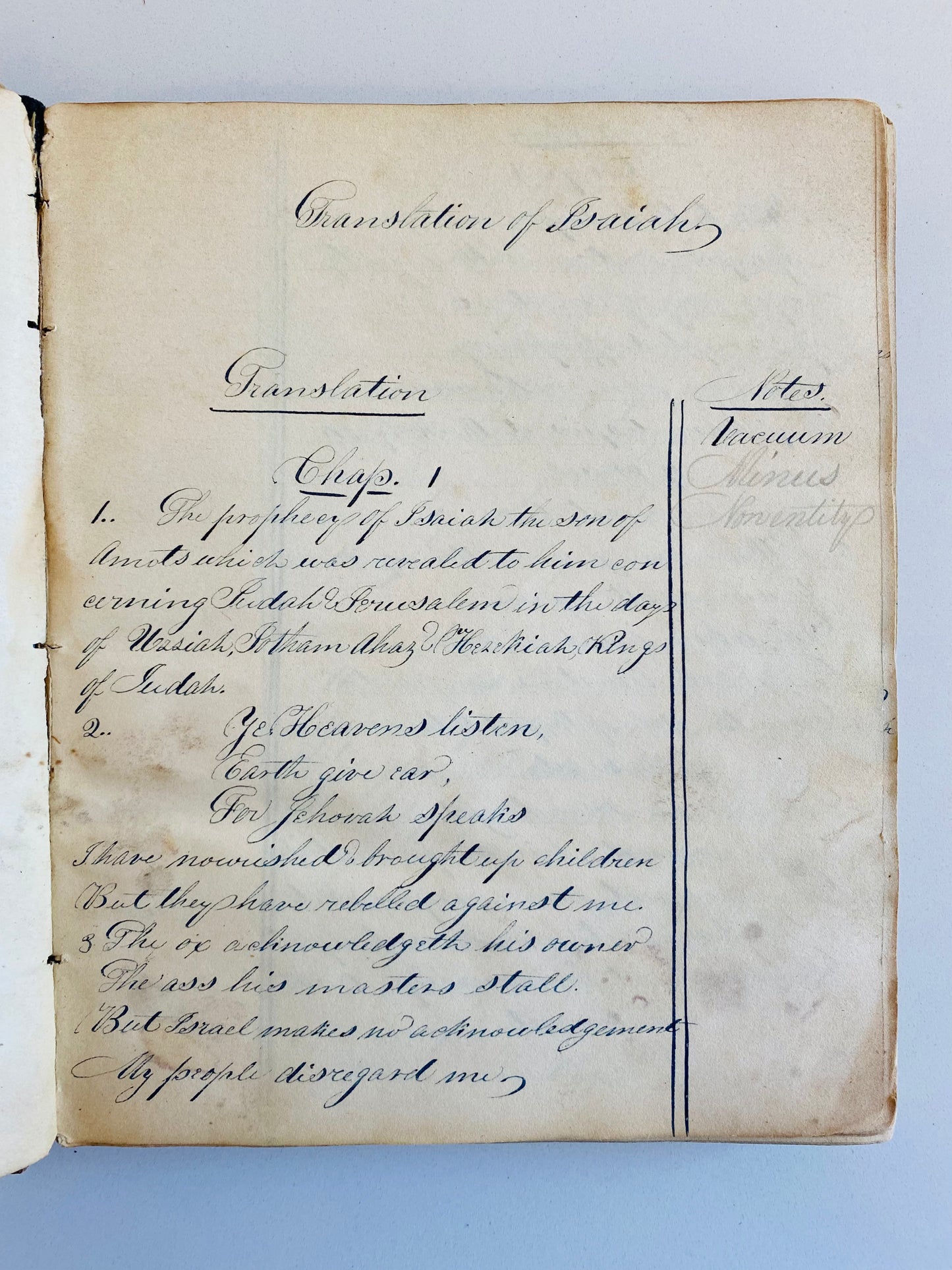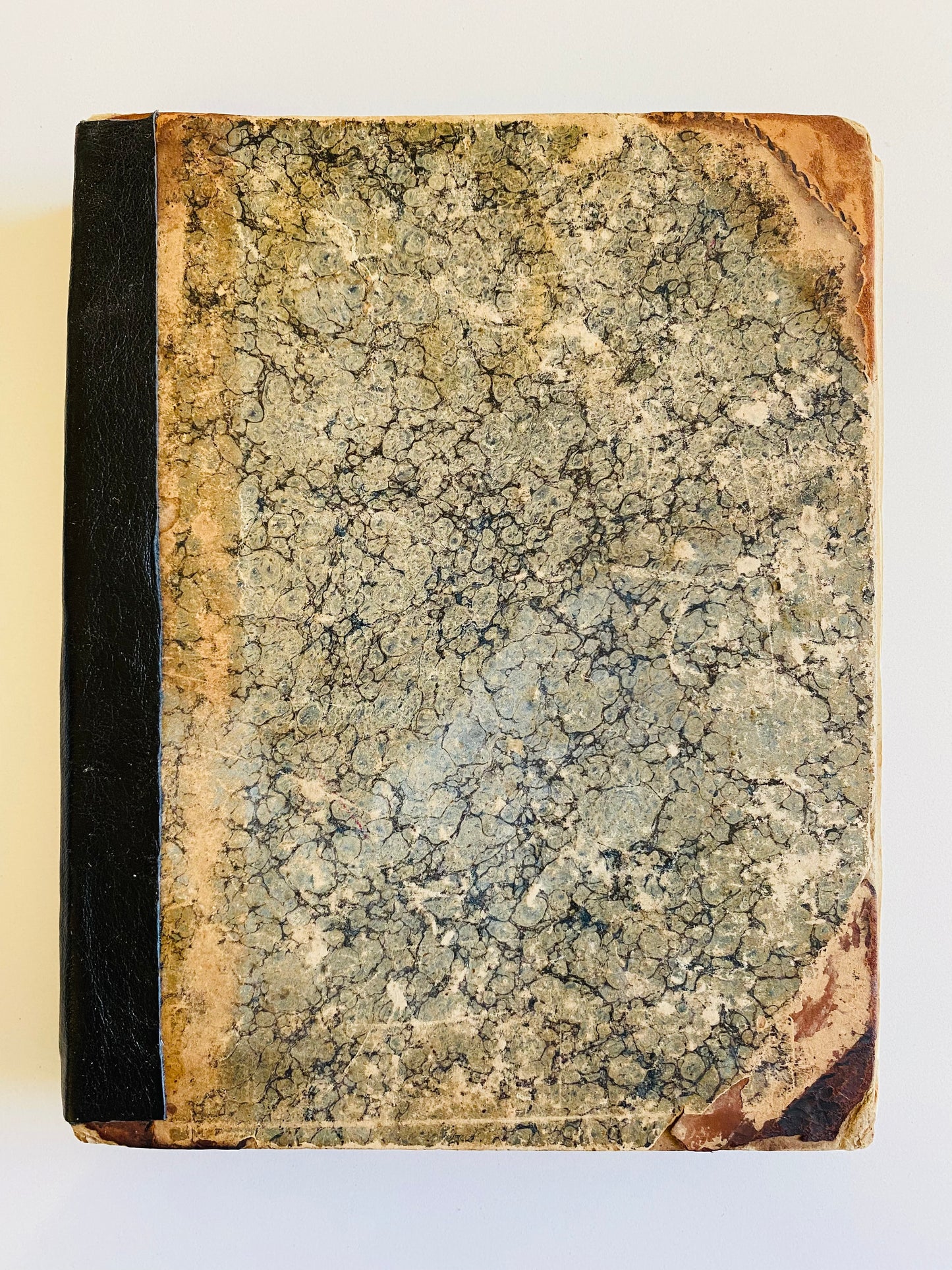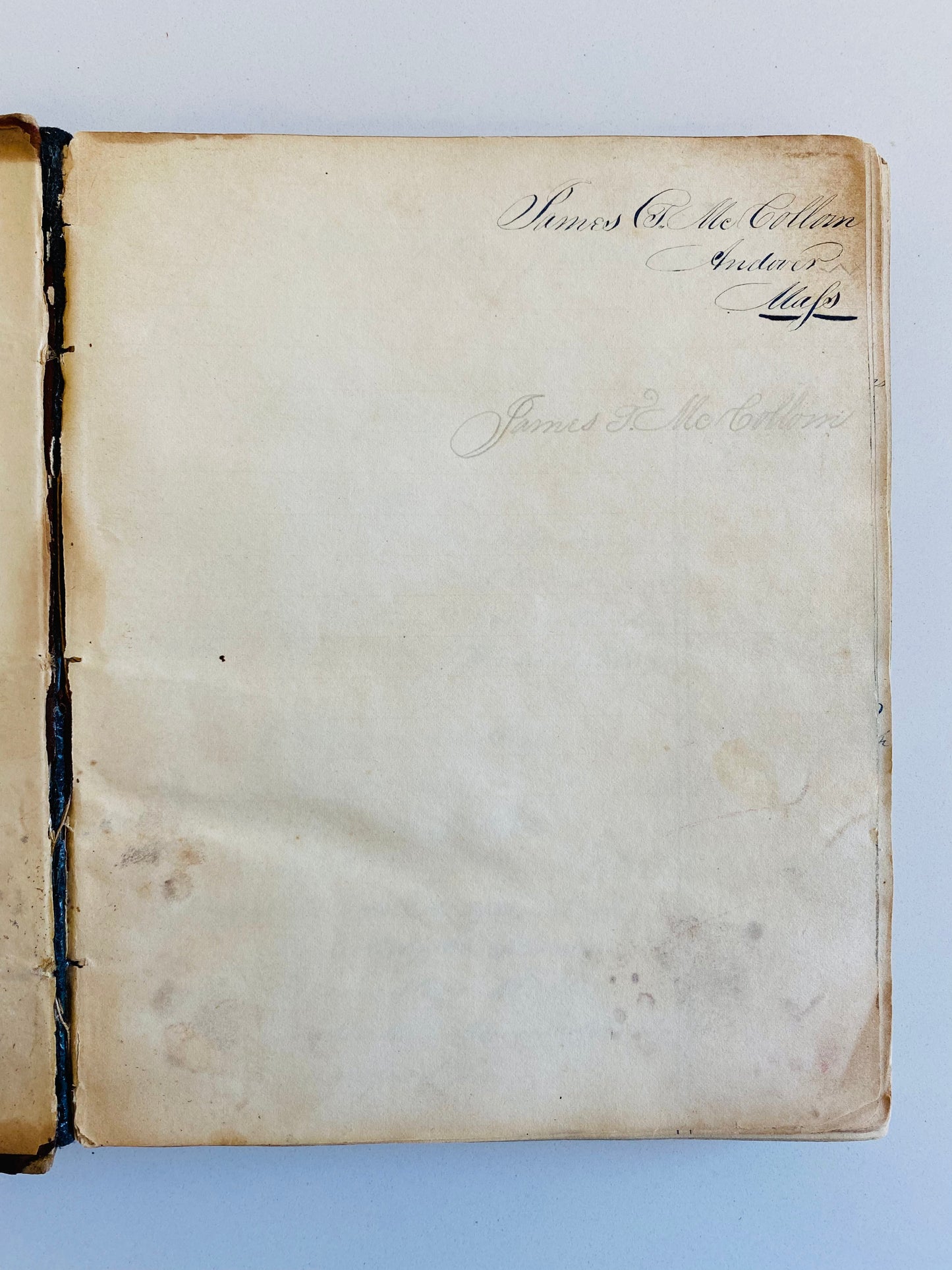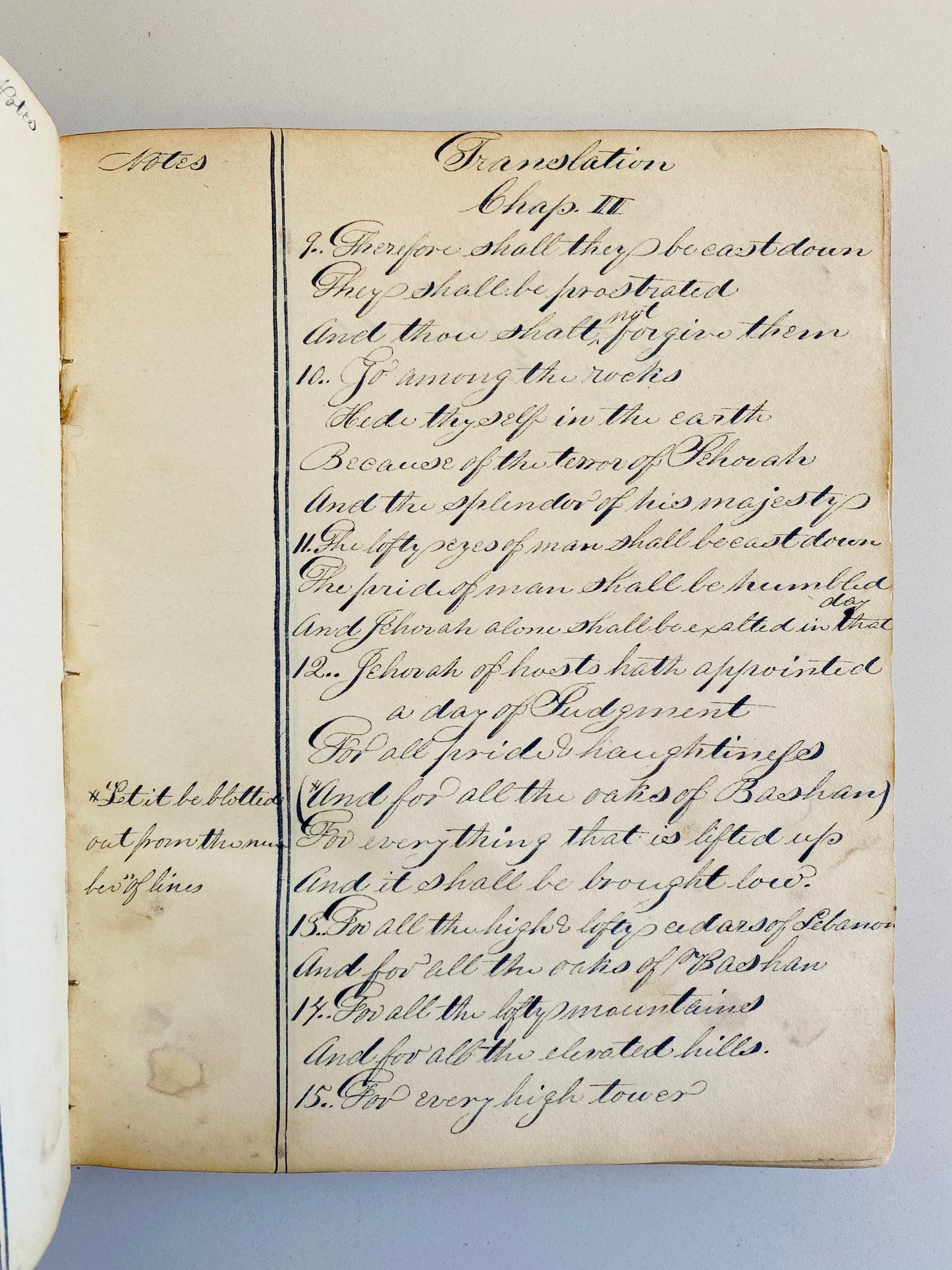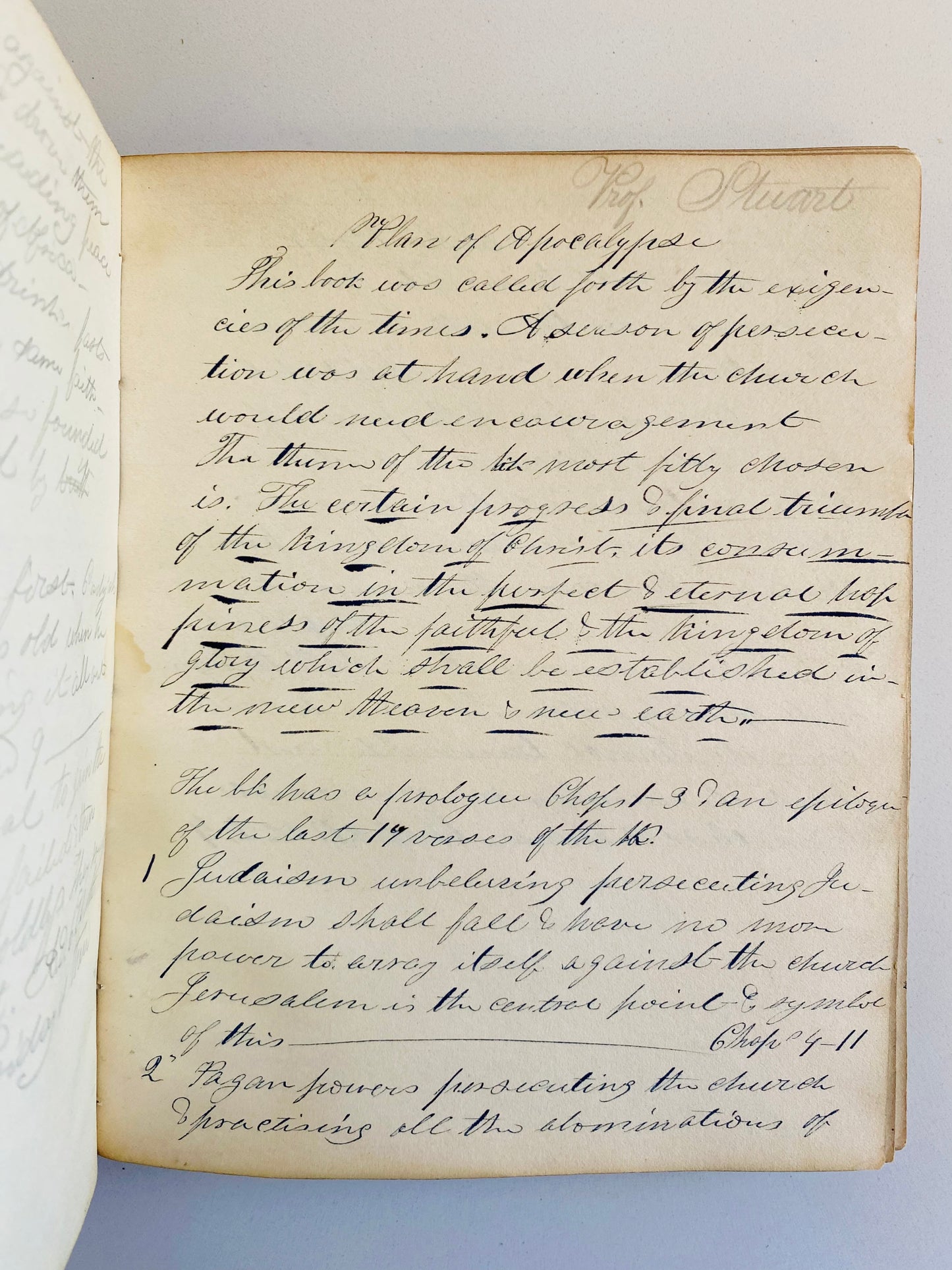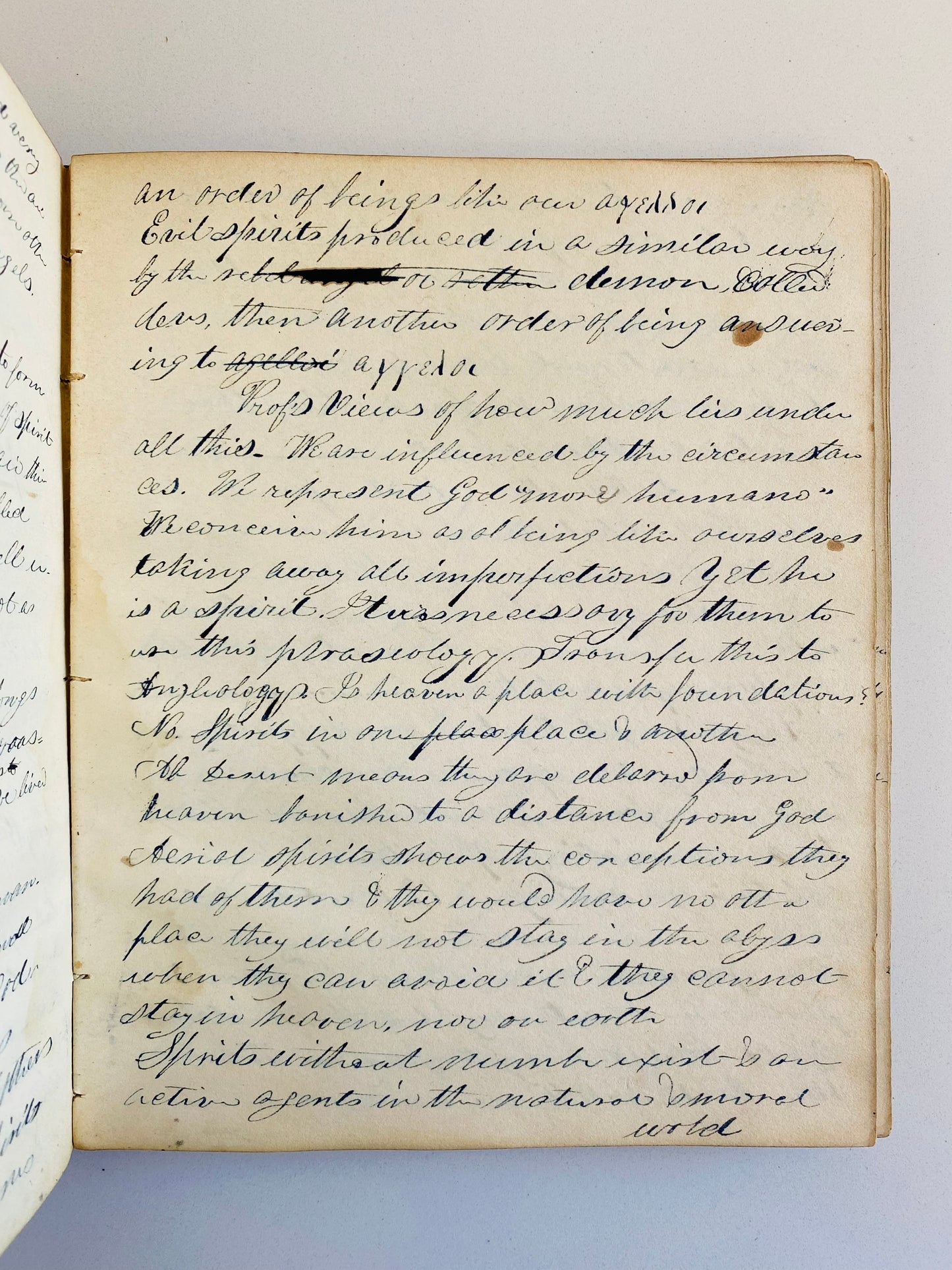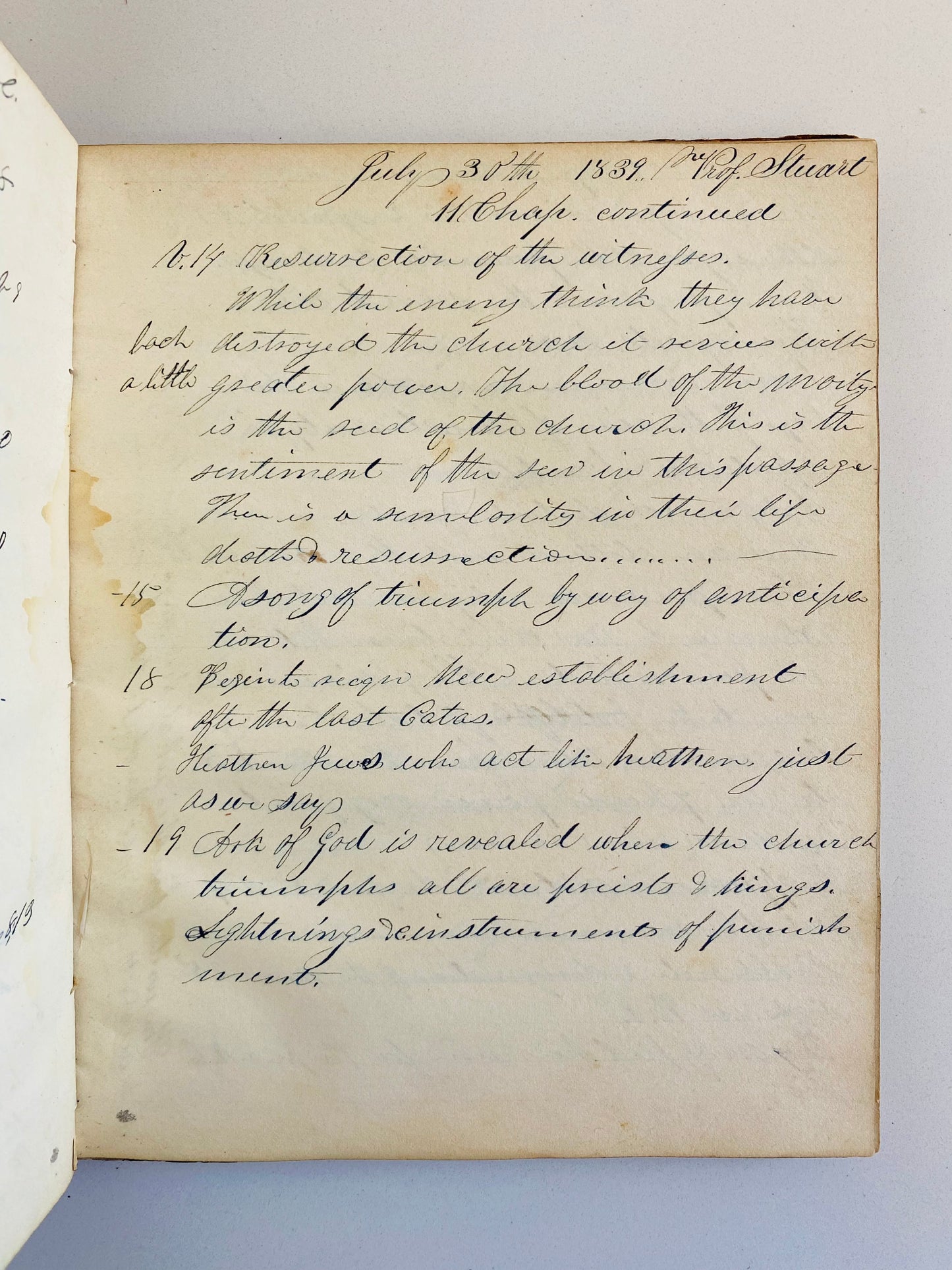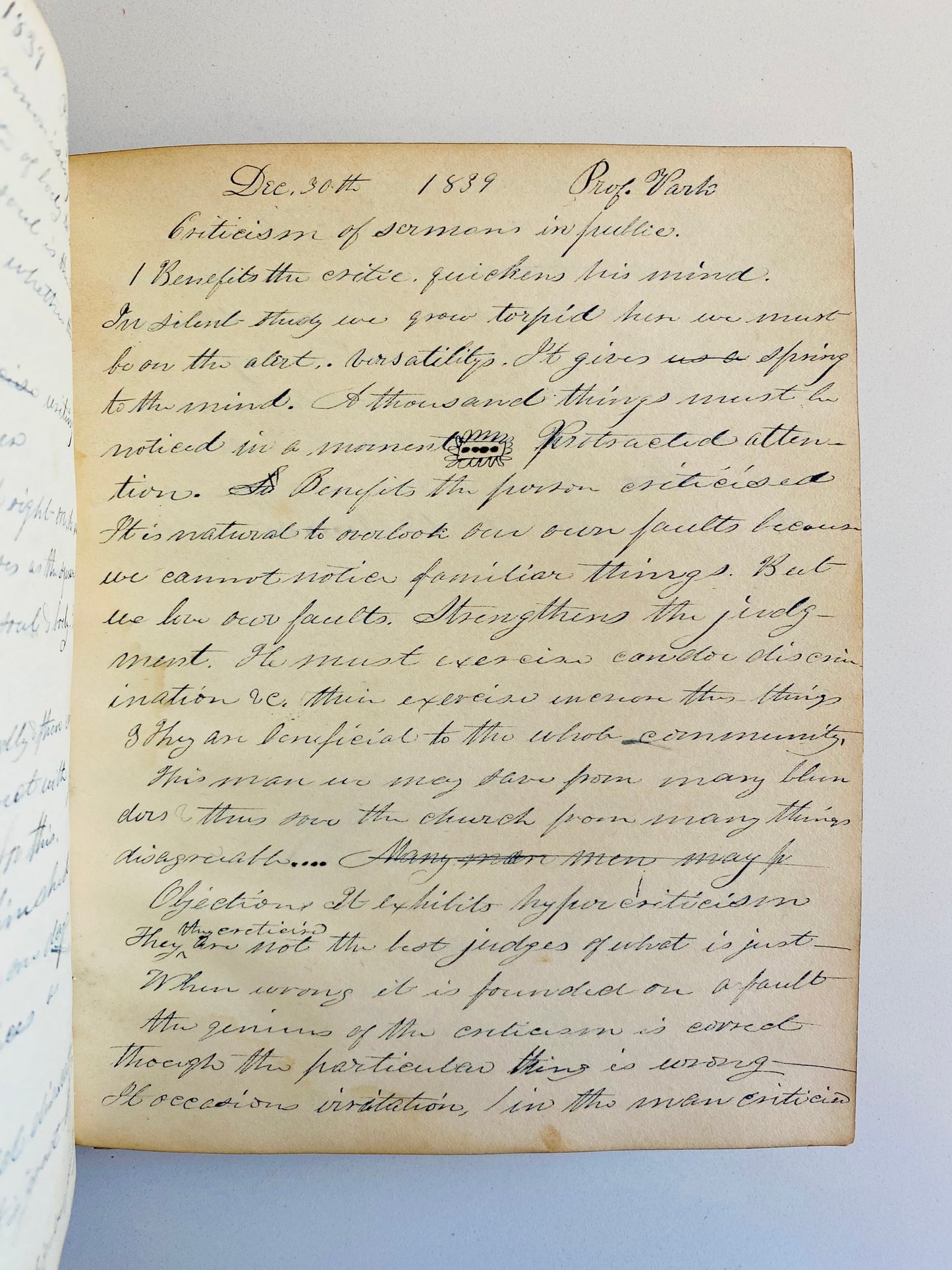Specs Fine Books
1839 MOSES STUART Et al. 170 Page Manuscript Theological Notes from Andover Seminary.
1839 MOSES STUART Et al. 170 Page Manuscript Theological Notes from Andover Seminary.
Couldn't load pickup availability
A wonderful and entirely unique 170 page handwritten manuscript journal of theological notes recorded by James Tomb McCollom while attending Andover Theological Seminary.
In addition to their written works, this manuscript provides a completely unique instance of the teachings of some of the most significant theological minds of the era. It should be remembered that many of the works we have from the time were actually published from hearer notes similar to the ones offered here.
Over 170 pages of meticulous and legible theological lectures on the value of church history, homiletics, baptism and the history of the controversy, actual translation work of Isaiah being done in class, etc., by three of the most prominent Evangelical divines of the era; Moses Stuart, Ralph Emerson, and Edwards Amasa Park.
Our seminary student was the aforementioned James Tomb McCollom. Born in Salem, N. Y. in 1814, he graduated from Dartmouth College in 1835, served as tutor there through 1838, and graduated from Andover Theological Seminary in 1840.
He held four pastorates, all successful; Pittston, Maine from 1841-44; Great Falls, New Hampshire from 1844-54; Bradford, Massachusetts from 1854-65; and finally at Medford, Massachusetts from 1865 until his death in 1874.
He was very much beloved as a pastor, having a reputation for being kind, patient, scholarly, diligent, earnest, and deeply spiritual. And, perhaps somewhat unusually for the era, there was a vein of humor in him. During college he earned the nickname, "Merry Mac."
Andover Theological Seminary (1807-1965) was a Congregationalist seminary founded in 1807 and originally located in Andover, Massachusetts on the campus of Phillips Academy. It was an important source of missionary and revivalist fervor during the Second Great Awakening. It was the seminary of its time and upon which most seminaries thereafter were modelled.
Among its prestigious professors were men such as Leonard Woods, Moses Stuart, and Edward Dorr Griffin.
The lecture notes included here are from the courses and special sessions of:
Moses B. Stuart (1780 - 1852) was an American biblical scholar. Stuart was born in Wilton, Connecticut on March 26, 1780. He was brought up on a farm, then attended Yale University graduating with highest honours in 1799; in 1802 he was admitted to the Connecticut bar and was appointed as a tutor at Yale, where he remained for two years. In 1806 Stuart became the pastor of the Centre (Congregational) Church of New Haven. He was later appointed professor of sacred literature in the Andover Theological Seminary in 1810. Stuart was elected a Fellow of the American Academy of Arts and Sciences in 1815 and the American Philosophical Society in 1824 and came to be known as the "Father of Hebrew Literature in America".
He contributed largely by his teaching to the renewal of foreign missionary zeal; of his 1,500 students more than 100 became foreign missionaries, among them such skilled translators as Adoniram Judson, Elias Riggs and William G Schauffler. In 1848 Stuart resigned his chair at Andover. He died in Andover on January 4, 1852.
Ralph Emerson (1787- 1863) was Professor of Ecclesiastical History and Pastoral Theology in the Andover Theological Seminary. He was born on August 18, 1787, in Hollis, New Hampshire, where his father was a leading citizen, and where his grandfather, Rev. Daniel Emerson, was a pastor from 1743 to 1801. He graduated from Yale College in 1811. After studying theology at Andover, he held the office of Tutor in Yale College, from 1814 to 1816, and at the close of this service he was ordained and installed as pastor of the Congregational church in Norfolk, Connecticut. Here he remained till 1829, when he was appointed professor in the Theological Seminary at Andover, an office which he retained through a period of 25 years till April, 1854. The next five years he resided at Newburyport, Massachusetts, after which he removed to Rockford, Illinois, for the sake of being near his children. While there, he repeated by request his lectures on the History of Christian Doctrine, to the students of the Chicago Theological Seminary. He was a contributor to the Bibliotheca Sacra and the Christian Spectator, and to other religious periodicals. He also published a life of his brother, the Reverend Joseph Emerson, and a translation, with notes, of a work on Augustinism and Pelagianism, by C. F. Wiggins. He received the degree of Doctor of Divinity from Yale College in 1830.
Edwards Amasa Park (1808-1900) was a Congregational minister, theologian, and professor at Andover Theological Seminary. Edwards Amasa Park graduated from Brown University in 1826, was a teacher at Braintree for two years, and in 1831 graduated from Andover Theological Seminary. He was co-pastor (with R. S. Storrs) of the orthodox Congregational church of Braintree in 1831-1833; professor of mental and moral philosophy at Amherst in 1835; and Bartlet professor of sacred rhetoric (1836-1847), and Abbot professor of Christian theology (1847-1881) at Andover. He died at Andover on 4 June 1900. An ardent admirer of Jonathan Edwards, whose great-granddaughter he married, Park was one of the most notable American theologians and orators. He was the most prominent leader of the new school of New England Theology. He left his theological impression on the Bibliotheca Sacra, which he and Bela B. Edwards took over in 1844 from Edward Robinson, who had founded it in 1843, and of which Park was assistant editor until 1851 and editor-in-chief from 1851 to 1884.
Very rare first-hand material from three of the great theological minds of the day; worthy of further investigation.
Share
